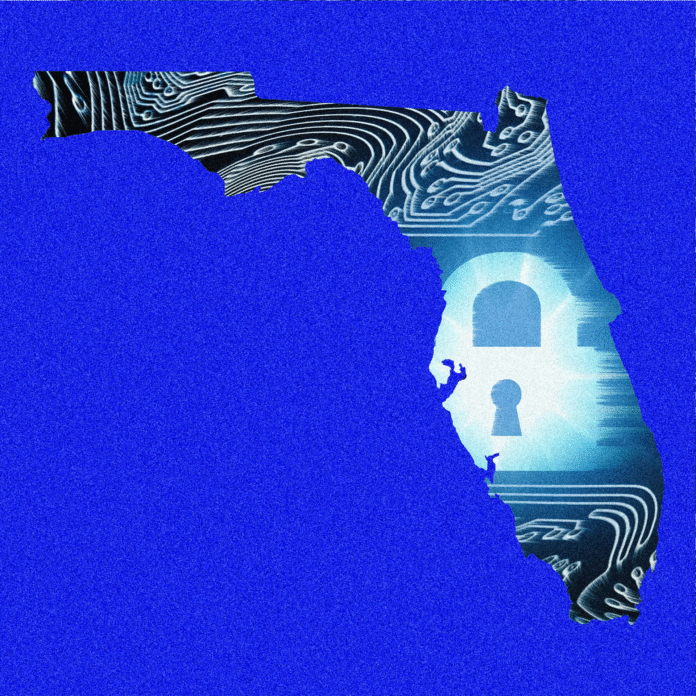
In April 2025, the United States finds itself at a pivotal juncture where technology, civil liberties, and government authority intersect. Recent developments highlight a nation grappling with the balance between national security and individual privacy.
Florida’s Encryption Legislation Sparks Debate
A proposed bill in Florida has thrust the state into the national spotlight concerning digital privacy. The legislation seeks to mandate that technology companies provide law enforcement with access to encrypted communications when presented with a subpoena. Critics argue that such measures could compromise the security of digital communications, setting a precedent that might erode privacy protections nationwide. Proponents, however, contend that the bill is essential for aiding criminal investigations and ensuring public safety. The Bulletin Box
Judicial Pushback on Mass Data Collection
In a landmark decision, a federal judge in Nevada ruled that the practice of “tower dumps”—collecting data from all cell phones connected to a specific tower during a particular time frame—violates the Fourth Amendment’s protection against unreasonable searches. This ruling underscores the judiciary’s growing concern over mass surveillance tactics that indiscriminately collect data from individuals not under investigation. While the evidence in the specific case was still admitted under the good faith exception, the decision sets a significant precedent for future cases involving digital privacy. The VergeBloomberg Law News
ICE’s Expanded Surveillance Initiatives
Immigration and Customs Enforcement (ICE) has entered into a $30 million contract with Palantir Technologies to develop “ImmigrationOS,” a surveillance platform designed to monitor individuals who overstay visas or self-deport. The system aims to provide near real-time tracking and integrate various data sources to streamline enforcement actions. This initiative has raised concerns among privacy advocates about the potential for overreach and the implications for civil liberties. WIREDBusiness Insider
CVE Program’s Funding Crisis Averted
The Common Vulnerabilities and Exposures (CVE) Program, essential for tracking software vulnerabilities, faced a potential funding lapse that could have jeopardized cybersecurity efforts. At the last moment, the Cybersecurity and Infrastructure Security Agency (CISA) extended funding to ensure the program’s continuity. This incident has prompted discussions about the program’s future, with some advocating for its transition to an independent nonprofit to safeguard against political and financial uncertainties. cybersecuritydive.com+2WIRED+2BleepingComputer+2BleepingComputer
China Accuses U.S. of Cyberattacks
In a move that escalates cyber tensions, Chinese authorities have accused three alleged National Security Agency (NSA) operatives of conducting cyberattacks during the 2025 Asian Winter Games. The accusations include hacking into China’s IT infrastructure and targeting companies like Huawei. China has placed these individuals on a wanted list, intensifying the ongoing cyber conflict between the two nations. PCMAG
CBP’s Use of AI in Social Media Monitoring
Customs and Border Protection (CBP) has been utilizing artificial intelligence tools to monitor social media platforms. These tools can rapidly identify individuals of interest by analyzing publicly available data. While intended to enhance security, this practice raises questions about the extent of surveillance and the potential impact on freedom of expression and privacy rights. 404 Media+1WIRED+1
Conclusion
These developments reflect the United States’ ongoing struggle to balance security needs with the preservation of individual freedoms. As technology continues to evolve, the nation must navigate the complex terrain of digital rights, government surveillance, and the rule of law to uphold the principles upon which it was founded.


